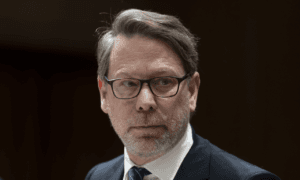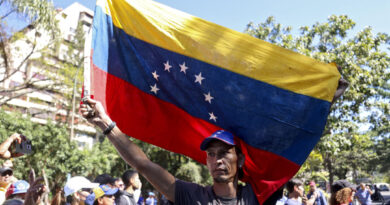Chief Electoral Officer Suggests New Laws to Combat Deepfakes
Canada’s elections chief is urging a ban on the misrepresentation of candidates and other key figures in the electoral process through the manipulation of their voice or image without consent.
The proposed amendment to the Canada Elections Act is part of a series of measures introduced by chief electoral officer Stéphane Perrault to tackle the use of deepfakes and other artificially created content to deceive voters.
In an interview, Perrault expressed his hope to convince Members of Parliament to expand an electoral reform bill, currently under review in a House of Commons committee, to include new elements.
While brazen meddling tactics like deepfakes have been prominent in public discourse in the United States, they are still relatively shocking in Canada, according to Perrault.
“We must acknowledge the various issues that arise during an election and be prepared to address them,” he stated.
Perrault presents these legislative proposals in a report on safeguarding the electoral process, which has been submitted to both Parliament and a federal inquiry into foreign interference.
Synthetic images, videos, and audio are increasingly simple to fabricate through AI-driven applications, enabling the dissemination of false information and confusion.
These deepfake techniques may involve replacing the face of a person in a video with another individual’s face and manipulating their voice.
“AI-generated images, audio, or videos that portray individuals engaging in actions they never performed, saying things they never uttered, or presenting created content can jeopardize democracy, making it challenging for a voter to distinguish reality from a deepfake,” states Perrault’s report.
“Although the risks associated with the swift evolution and accessibility of AI extend beyond foreign interference, it is evident that foreign state actors could exploit technology to produce deepfakes in order to influence or subvert the electoral process.”
Currently, the elections law includes a section addressing impersonation, prohibiting the false representation of oneself as the chief electoral officer, an election officer, a candidate, or a party or riding association representative with the intent to deceive, as noted in the report.
However, the report highlights that the law does not encompass scenarios where someone manipulates a party leader’s voice or image, or that of any other designated key figure, to create a deepfake.
The bill currently under consideration in Parliament suggests amendments to the impersonation provision and a related prohibition on misleading publications, making it clear that these restrictions apply regardless of the medium or mode of dissemination of the false representation.
Nevertheless, these minor adjustments do not address the threat posed by deepfakes, according to the report.
Perrault proposes broadening the impersonation provision to encompass misrepresentation through voice or image manipulation, and proposes extending the applicability of the relevant provisions beyond electoral periods.
Perrault acknowledges that it is healthy for individuals to express concerns about the electoral process or its integrity, even if those concerns turn out to be unfounded. However, he has long advocated for the prohibition of false statements intended to disrupt or undermine the legitimacy of an election.
The current bill would introduce a provision to combat the spread of inaccurate information but falls short of prohibiting statements aimed at undermining the election’s legitimacy, the report points out.
“Considering that this is precisely the goal pursued by some foreign state actors and is perhaps the most detrimental form of foreign interference in our democracy, it requires attention,” the report states.
Perrault suggests amending the elections act to prohibit the dissemination of false information intended to undermine trust in an election and its results.
The chief electoral officer’s report also recommends changes that go beyond the current bill’s scope and would require consideration in new legislation, including amendments to enhance the transparency of election-related communications and reinforce the integrity of political nomination and leadership contests.





